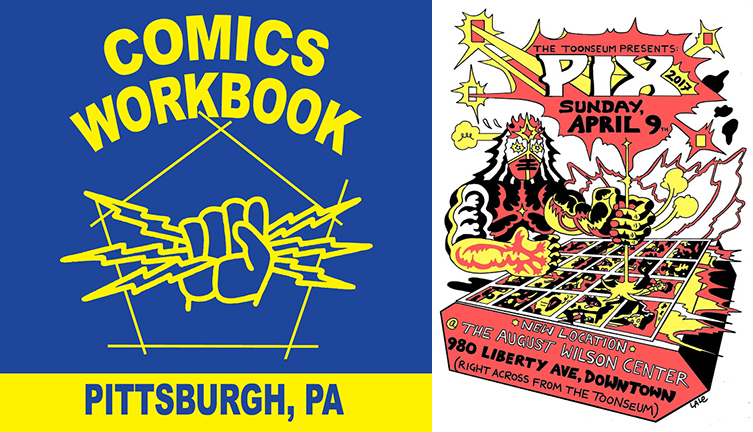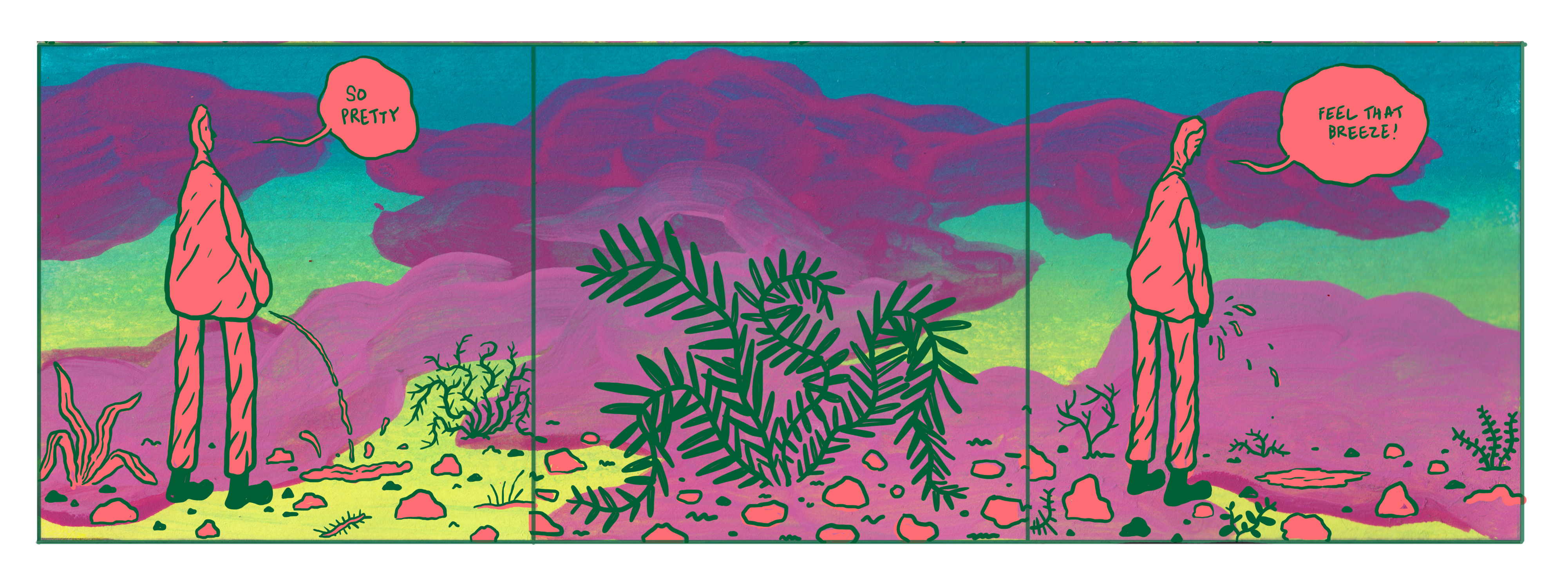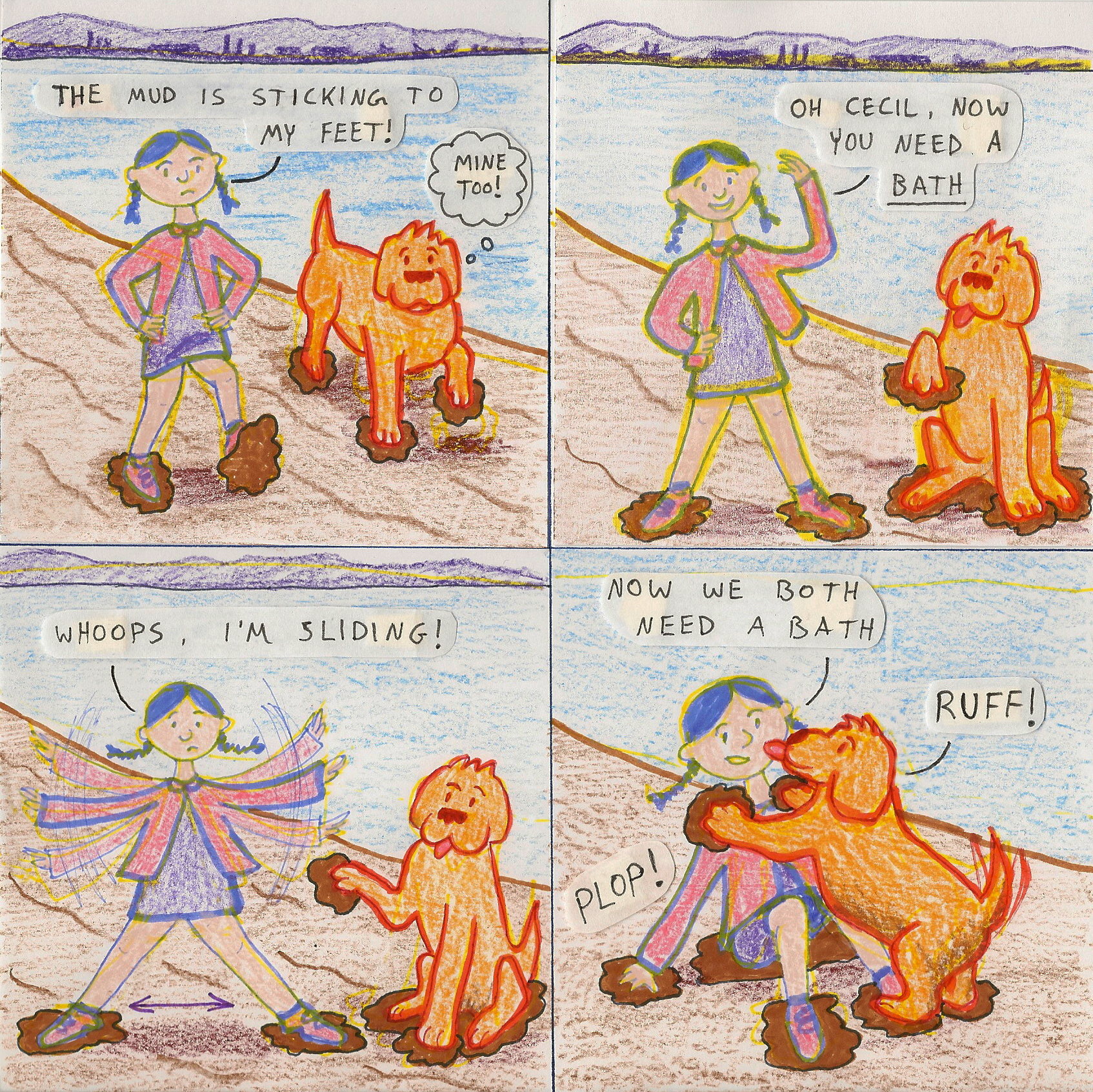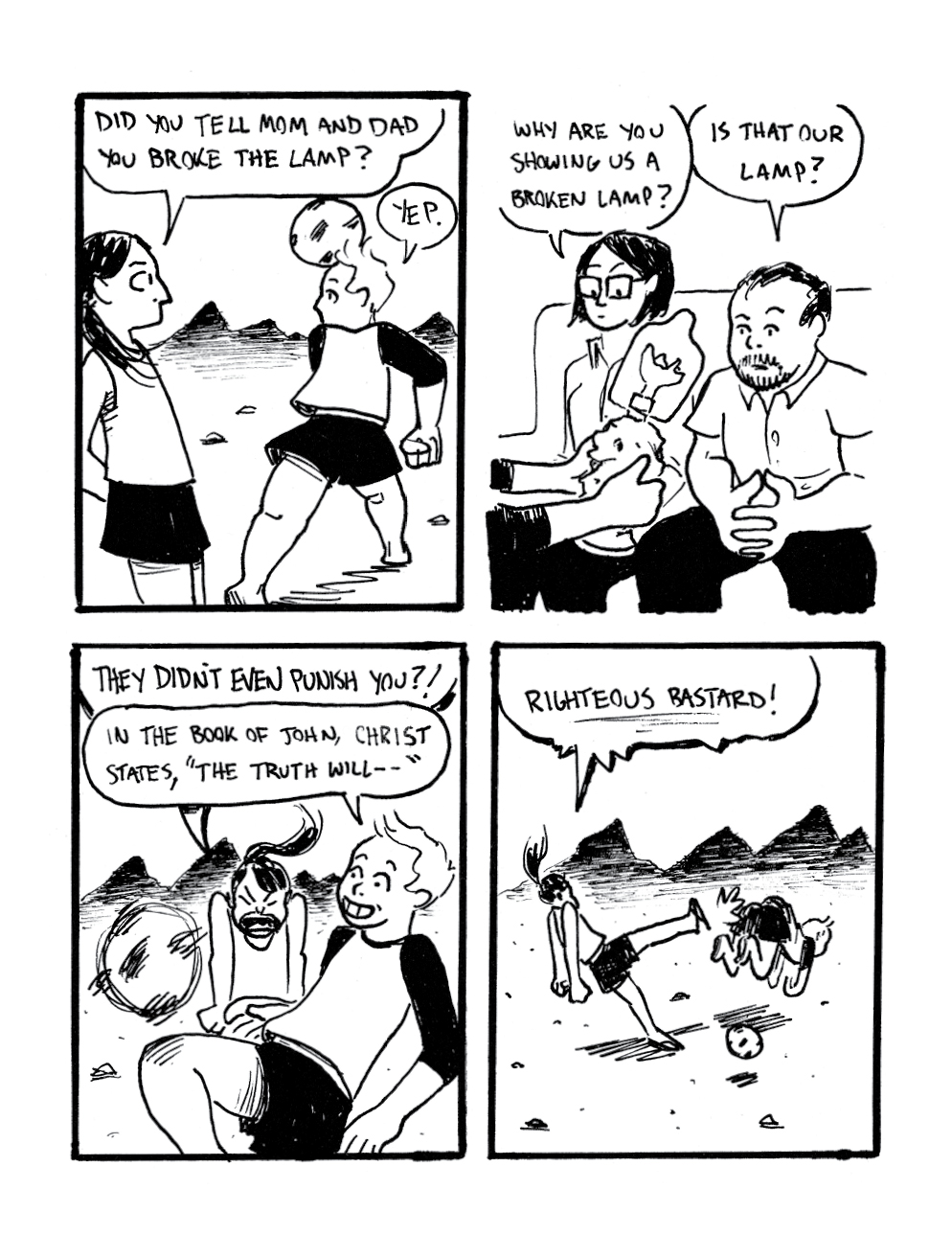Sally here with updates from John Jennings; the (H)afrocentric project; Ron Wimberly/C. Spike Trotman/Ariell Johnson on NPR; throwing “diversity” under the bus.
—————————————————————————————————
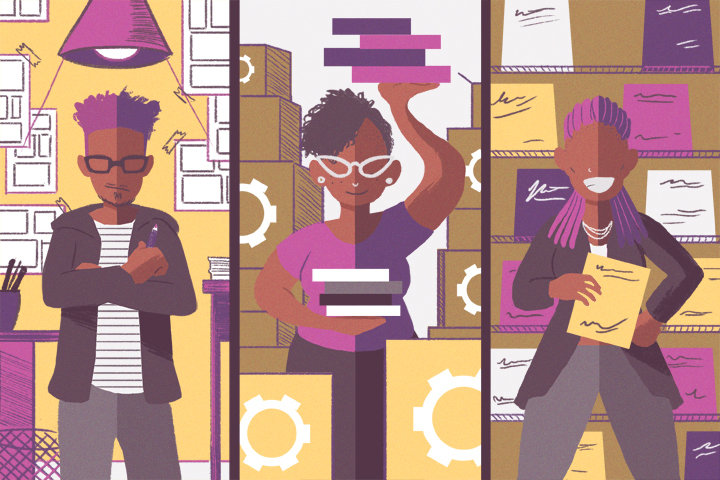
Gene Demby and Glen Weldon of NPR spoke to Ronald Wimberly, C. Spike Trotman (online comics publisher of Iron Circus Comics in Chicago, and creator of the long-running webcomic Templar, Arizona), and Ariell Johnson (owner of Amalgam Comics & Coffeehouse in Philadelphia) about “changing color in comics“. Listen to the podcast HERE.
—————————————————————————————————
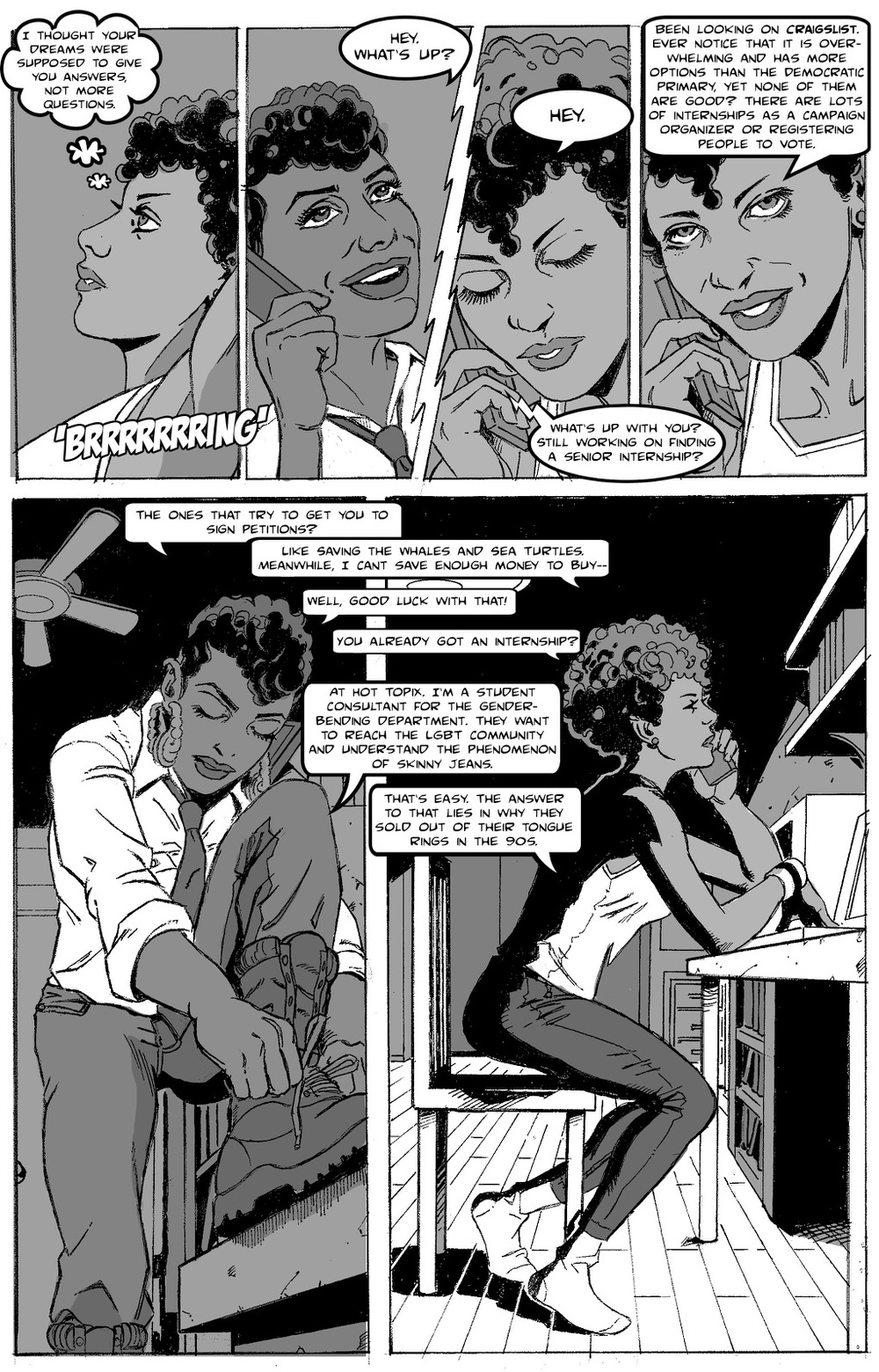
Check out (H)afrocentric, a comics project created by Juliana “Jewels” Smith. An educator, writer, and organizer based in Oakland, CA, she “created (H)afrocentric as a way to challenge students and readers alike about the presumptions around race, class, gender and sexuality through character dialogue. Her practice focuses on the links between racial justice, gender equity, and political literacy; using creativity to facilitate dialogue.”
There are 4 volumes of the comic so far – you can preview Vol. 1, 2, and 3 HERE and Vol. 4 HERE. Juliana writes it and Ronald R. Nelson provides the artwork (with Mike Hampton as colorist/letterer). The team also makes a comic strip which is available as a “Sunday Funny” via email subscription – or you can catch up with the whole thing HERE.

—————————————————————————————————
Over the past weekend, a few folks at Marvel Comics put their feet in their mouths. This is not unusual, these days. David Gabriel, Marvel’s senior vice-president of sales, print, and marketing, tried to blame Marvel’s recent decline in sales on their attempts at adding “diversity” to their comics. Que an uproar.
The Guardian‘s JA Micheline had some things to say about it:
“Let’s look at how the discussion was framed: “Any character that was diverse, any character that was new, our female characters, anything that was not a core Marvel character, people were turning their nose up,” says Gabriel – without a qualifier or interrogation of which readers and why. I can promise you that it’s not women going into comic-book shops, sick of female characters. I can similarly promise you that people of colour are not entering comic-book shops and turning their noses up at faces that look like theirs. By even making remarks like these, Marvel is seemingly conceding that its target audience, its “core” audience – and their “core” characters – are white and male.“
Read the rest of her comments HERE.
G. Willow Wilson, the writer behind Ms Marvel, had a thoughtful response as well. Among her comments was a reminder to the folks at Marvel and elsewhere:
“Diversity as a form of performative guilt doesn’t work. Let’s scrap the word diversity entirely and replace it with authenticity and realism. This is not a new world. This is *the world.*“
Read the rest of her thoughts HERE.
Vox offers up a detailed and fairly balanced look at the whole snafu and pinpoints some of the reasons for both the outrage and the cause of it.
—————————————————————————————————
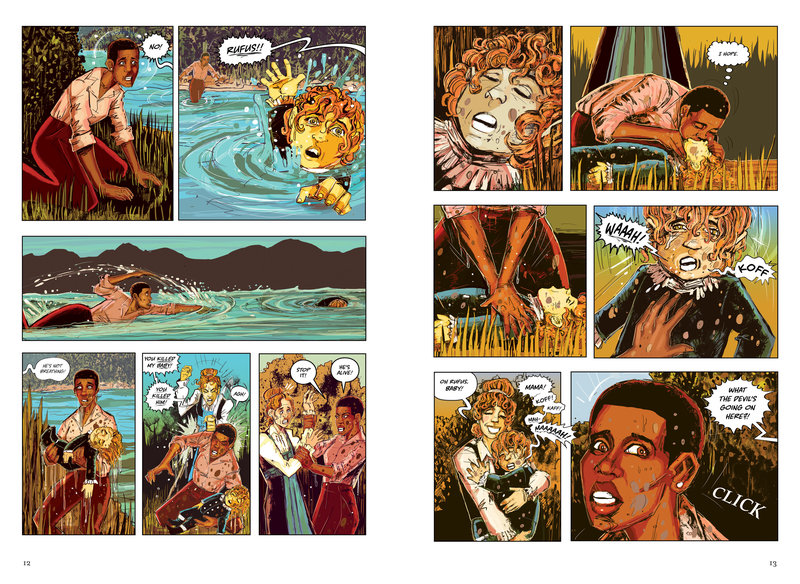
John Jennings spoke to The Boston Globe recently about his new comic adaptation of Octavia Butler’s Kindred (above) and his interest in horror stories. His comic recommendations and recent reads are all excellent, and I like where he says (despite the evidence of his new book) that he doesn’t like the idea of graphic novels being a “gateway” to reading books. Read the interview HERE.
There is also a great interview on NPR from February 2017 about the joys (and fears) of making Kindred into a comic – check it out.
I’ve linked to this piece before, but if you’re unfamiliar with John Jennings and the work he does in the comics community, get to know him better HERE.
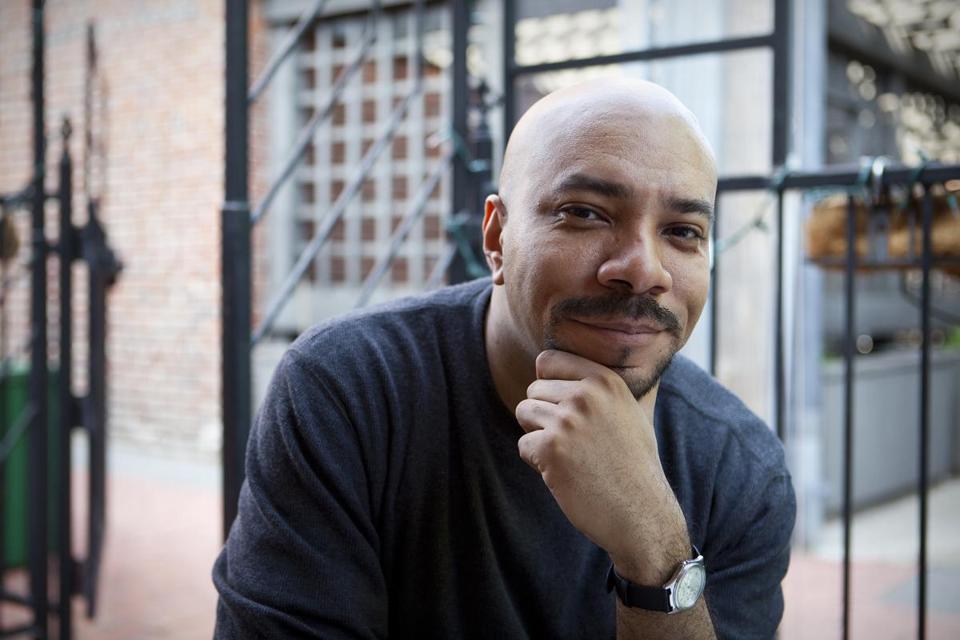
—————————————————————————————————

The illustration above by Comics Workbook student Shannon Wright accompanies an article about a case of “shared” identity. Not comics at all – but an interesting read.
—————————————————————————————————
Comics Workbook will be at the Pittsburgh Indy Comix Expo on Sunday, April 9th. We will be hosting a workshop series with instructors from the school, as well as special guests Carol Tyler, Lale Westvind, and Connor Willumsen! More details HERE.
—————————————————————————————————
Blinkers – 4-6-2017 – by Jack Brougham
—————————————————————————————————
Suzy and Cecil – 4-6-2017 – by Sally Ingraham
—————————————————————————————————
Joanie and Jordie – 4-6-2017 – by Caleb Orecchio
